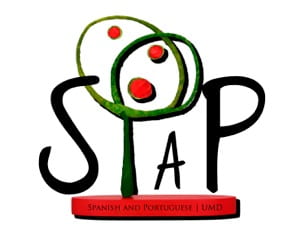The Latin American Studies Center is proud to announce our Visiting Scholars for the spring 2012 semester.
Dr. Carlos Pabón of the University of Puerto Rico, Rio Piedras, specializes in questions of repression and historical memory.
Dr. Juan Castillo Cocom of the Universidad Intercultural Maya, Quintana Roo, Mexico, specializes in questions of ethnicity and indigenous peoples.
LASC Visiting Scholars will be in residence for between 10 days and two weeks. They will lecture publically and run intensive workshops for graduate students and faculty. Advanced undergraduates may also attend. UMD students may receive credit for attending.
Mark your calendars.
Carlos Pabón
Lecture: “Can the Story Be Told? History, Memory, and Fiction in the Representation of Extreme Violence” Wednesday, February 22nd 5:00pm – 7:00pm, location TBA)
In his lecture, Professor Pabón will discuss the challenges posed by the relationship between History, Memory and Fiction in the Representation of the Holocaust, the Spanish Civil War, the Pinochet dictatorship in Chile and the military dictatorship in Argentina.
Workshop: “History and Memory of Recent Traumatic Pasts (Chile, Argentina, and Spain)” (Friday, February 24th 1:00 pm – 5:00 pm and Saturday, February 25th 9:30 am – 3:30 pm with working lunch)
Professor Pabón’s workshop will focus on the problem of the “subjective turn” in historiography, particularly in the field of the “recent history” of traumatic pasts, focusing on the cases of Chile, Argentina, and Spain. This turn has been expressed in the centrality that the figure of the witness or the victim, testimony and memory have received, after decades of invisibility or marginalization on the part of historical discourse.
Juan Castillo Cocom is the author of various articles on identity and specifically has written on Maya identity politics. He has taught at Florida International University, the Universidad Autónoma de Yucatán, CINVESTAV, and the Universidad de la Habana, Cuba. In 2003, he was the Yucatán academic seminar leader for the Fulbright Hays Summer Seminar on Indigenous Cultures and Environmental Issues in México and Costa Rica. Since the summer of 2007, he has been the chair of the teaching faculty of the Universidad Intercultural Maya de Quintana Roo.
Lecture: “Ethnoexodus: Strategic forgetfulnesses and flashbacks” (Wednesday, April 4th 5:00 pm – 7:00 pm, location TBA)
Professor Castillo Cocom will discuss the production of knowledge on “the Maya” through different channels, such as popular media, tourism industry and academic discourse. His presentation provides a critique on anthropological knowledge and discourses as these infiltrate the social imagination. It investigates the “Maya” individual’s constant production of, dislocation from, and re-location in temporary points of identity as practical strategies of “ethnoexodus.” The concept of ethnoexodus is a critique of the idea ethnogenesis as a way of understanding “Maya” identity, and identity formation in general, and how it relates to production of ethnos. Ethnoexodus, as a conceptual tool, focuses on how an individual/social actor can “exit” a temporal “point” of identity suture without having necessarily ever been “in” that particular construction of identity.
Workshop: “Ethnoexodus: Maya Yucatec Topographic Ruptures” (Friday, April 6th 1:00 pm – 5:00 pm and Saturday, April 7th 9:30 am – 3:30 pm with a working lunch)
The primary goal of Professor Cocom’s workshop is to think through the conceptual framework that gives rise to ethnoexodus. This will be accomplished by way of considering, in the first part of the course, the case study of Maya Topographic Ruptures. The goal will be to explore how and why the identity politics of being Indian/Indígena and Maya in Yucatan differ from the politics of Indigeneity in Chiapas, and other parts of México, Guatemala and the Americas.
Students interested in receiving course credit should contact Dr. Karin Rosemblatt at karosemb@umd.edu. Students who attend the lecture and workshop and submit a short final paper may receive one credit.
